Waqas Zamir
Max-margin Class Imbalanced Learning with Gaussian Affinity
Jan 23, 2019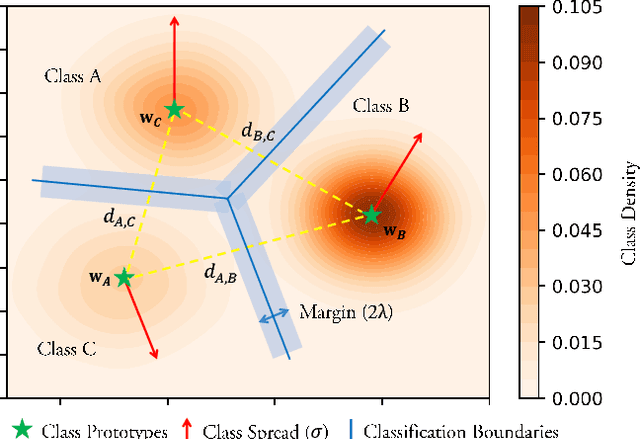
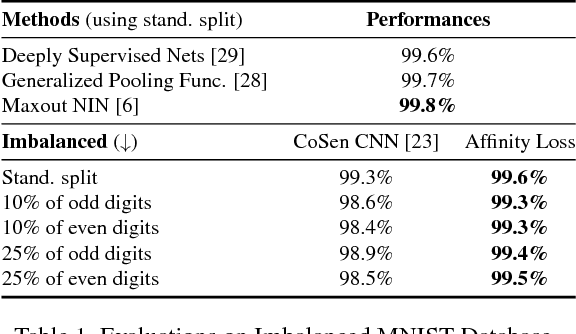

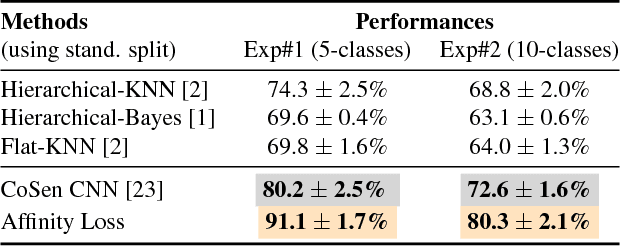
Abstract:Real-world object classes appear in imbalanced ratios. This poses a significant challenge for classifiers which get biased towards frequent classes. We hypothesize that improving the generalization capability of a classifier should improve learning on imbalanced datasets. Here, we introduce the first hybrid loss function that jointly performs classification and clustering in a single formulation. Our approach is based on an `affinity measure' in Euclidean space that leads to the following benefits: (1) direct enforcement of maximum margin constraints on classification boundaries, (2) a tractable way to ensure uniformly spaced and equidistant cluster centers, (3) flexibility to learn multiple class prototypes to support diversity and discriminability in feature space. Our extensive experiments demonstrate the significant performance improvements on visual classification and verification tasks on multiple imbalanced datasets. The proposed loss can easily be plugged in any deep architecture as a differentiable block and demonstrates robustness against different levels of data imbalance and corrupted labels.
Striking the Right Balance with Uncertainty
Jan 22, 2019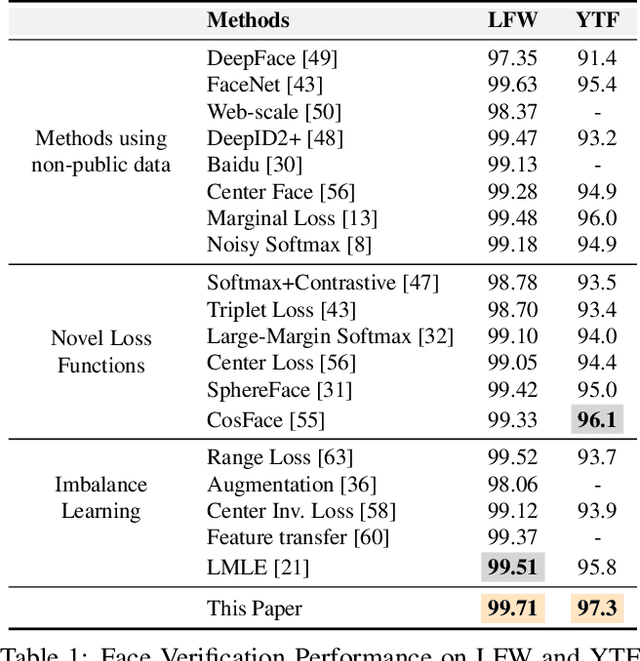
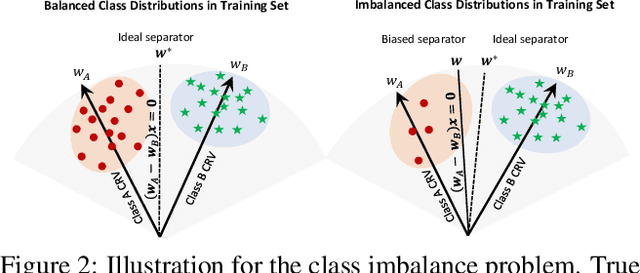
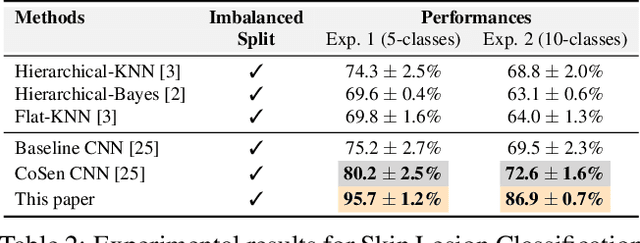
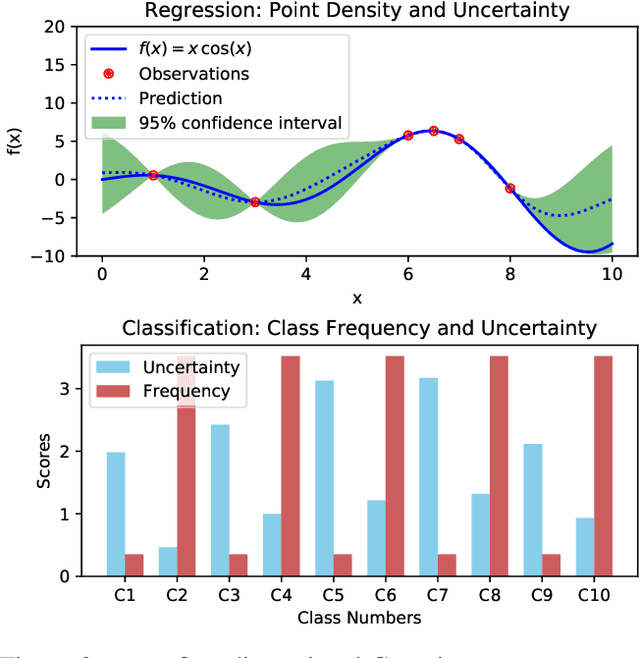
Abstract:Learning unbiased models on imbalanced datasets is a significant challenge. Rare classes tend to get a concentrated representation in the classification space which hampers the generalization of learned boundaries to new test examples. In this paper, we demonstrate that the Bayesian uncertainty estimates directly correlate with the rarity of classes and the difficulty level of individual samples. Subsequently, we present a novel framework for uncertainty based class imbalance learning that follows two key insights: First, classification boundaries should be extended further away from a more uncertain (rare) class to avoid overfitting and enhance its generalization. Second, each sample should be modeled as a multi-variate Gaussian distribution with a mean vector and a covariance matrix defined by the sample's uncertainty. The learned boundaries should respect not only the individual samples but also their distribution in the feature space. Our proposed approach efficiently utilizes sample and class uncertainty information to learn robust features and more generalizable classifiers. We systematically study the class imbalance problem and derive a novel loss formulation for max-margin learning based on Bayesian uncertainty measure. The proposed method shows significant performance improvements on six benchmark datasets for face verification, attribute prediction, digit/object classification and skin lesion detection.
 Add to Chrome
Add to Chrome Add to Firefox
Add to Firefox Add to Edge
Add to Edge